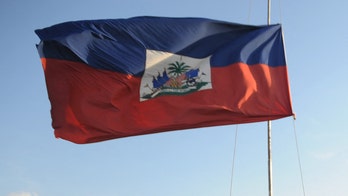At least nine protesters have been killed in Nigeria during mass demonstrations over the country's worsening economic crisis, according to rights groups. Security forces have clashed with demonstrators, and the military has threatened to intervene to quell the violence.
Nigerian citizens have taken to the streets to voice their frustrations over the country's deep economic woes. The protests, which have gained momentum on social media, are centered around food shortages and accusations of misgovernment and corruption. Nigeria, Africa's most populous nation, has long been plagued by mismanagement and inequality, with public officials enjoying exorbitant salaries while the majority of the population struggles with poverty and hunger.

Nigeria: Protests Over Economic Crisis Turn Deadly, Security Forces Clash with Demonstrators
Initially, the protests were largely peaceful. However, as tensions mounted, clashes erupted between security forces and demonstrators. Police fired tear gas and arrested over 400 protesters. One police officer was killed, and the military threatened to intervene to prevent further violence.
Amnesty International and other rights groups have condemned the excessive force used by security forces. Witnesses and family members of victims have reported that protesters were deliberately targeted and killed. The police chief, Kayode Egbetokun, defended the actions of his officers, claiming they were aimed at preventing mass looting and unrest.

Nigeria: Protests Over Economic Crisis Turn Deadly, Security Forces Clash with Demonstrators
The economic crisis that has sparked the protests has reached a boiling point. Nigeria is experiencing its worst cost-of-living crisis in a generation, with inflation soaring to a 28-year high. Government policies have led to a sharp devaluation of the local currency against the dollar, further exacerbating economic hardship.
Curfews have been imposed in five northern states to prevent the spread of violence and looting. However, protesters have defied the restrictions in some areas, leading to arrests and clashes with police. Despite the government's threats, demonstrators have vowed to continue their fight for economic justice.
The international community is monitoring the situation in Nigeria with concern. The United Nations has called for restraint and urged all parties to respect the right to peaceful protest. Observers fear that the violence could escalate and lead to a wider crisis.
Rights groups and activists are demanding accountability from security forces and the government. They argue that the protesters' legitimate grievances should be addressed through peaceful dialogue and economic reforms. The government has acknowledged the economic challenges facing the country but has so far failed to implement effective solutions.
The economic crisis has exacerbated hunger and insecurity in Nigeria's northern states. Dozens of protesters were seen looting goods, including food and furniture, amid the chaos. The government must address the root causes of poverty and inequality to prevent the situation from spiraling further out of control.
The protests in Nigeria bear similarities to the deadly 2020 demonstrations against police brutality and the recent chaotic tax hike protests in Kenya. However, analysts caution against drawing direct comparisons. Each situation has its own unique context, and the response from authorities should be proportionate and respectful of human rights.










